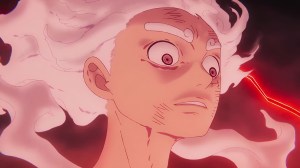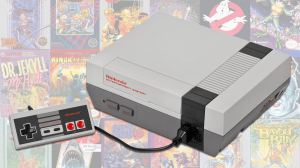Last week, Scrubs creator Bill Lawrence asked Hulu and parent company Disney to remove three episodes of the long-running sitcom from circulation after he decided that depictions of white actors in “blackface” makeup was not appropriate and did not belong in a show that prided itself in being inclusive and progressive. On Monday of this week, Lawrence (and former Scrubs cast member Sarah Chalke, who was one of the people who wore blackface during the show’s run) joined series stars Zach Braff and Donald Faison for an episode of their Scrubs rewatch podcast Fake Doctors, Real Friends to discuss the issue.
Videos by ComicBook.com
Lawrence said that when he asked Disney to remove them, he had not made a statement since he thought it would feel performative, was confronted with the episodes on Twitter last week and let the commenter know that he had already asked for the episodes in question to be removed. Once the news was out there, Lawrence accepted an invitation to speak on the matter with Faison and Braff. Lawrence said that when some fans had asked why he did not remove the offending scenes and reupload the episode, he indicated that he would probably do that, but that right now, he does not have editing facilities as a result of the pandemic, and he thought it was more important to remove the offending material than it was to be precious about the episodes.
“I did see some things directed at Donald and Zach and Sarah, and everybody should know that the reason that word ‘showrunner’ exists in television is becuase you’re the gatekeeper, and anything that gets allowed on a show, you have to ultimately take responsibility for,” Lawrence said. He apologized to the cast as well as the audience, saying that some of the dated material in the show is content he had not thought about since the show was on television. The rewatch podcast, then, had been his first real consideration of the issues in years.
When fans were upset that he had pulled the episodes, accusing Lawrence of bending to “cancel culture,” the producer said that “it’s a pandemic. I don’t really have an editing facility up right now.” After saying he will probably re-release the episodes with edits made later, he added, “The first thing I wanted to do was get them off TV because it bummed me out personally and it made me feel sh—y.”
He acknowledged that there is always a slippery slope in the arts when people start making edits for content but, “For me, it’s my show and I’m proud of it. Those moment make me feel like s–t, make me feel stupid.” He said that while there are other elements of the series that are dated and some people might object to, that as he rewatched the show there was nothing else he has seen so far that made him feel as bad as the blackface episodes.
All of the actors said that they felt responsible for not standing up and objecting to the content, especially in the case of “My Chopped Liver,” in which J.D. (Braff) and Turk (Faison) are on their way to a “black and white party” at Turk’s fraternity. Dressed as one another, with Braff in blackface and Faison in whiteface, J.D. questions the appropriateness of what he’s doing. Turk assures J.D. that his all-Black fraternity brothers will be fine with it as long as the two are together, and they see that Turk is in on the joke. But when Turk is momentarily distracted, he walks away, resulting in J.D. being beaten up by offended frat brothers. Braff admitted in the podcast that he had felt uncomfortable with the scene when he saw it in the script, but that he had not voiced his concern to Lawrence because when other cast and crew members saw nothing wrong with it, he did not want to be the one to rock the boat. He admitted that now, as a successful actor and director in his forties, he would have said something.
In the other episodes, characters like J.D. or Elliot (Chalke) were combined with, or traded places with, Turk in the series’ frequent fantasy sequences, resulting in the white actor being painted brown and given a bald cap. In those cases, Braff said that he had not thought of it as “blackface” at the time, perceiving the term as a throwback to the kind of shoe-polish blackface seen in movies like Trading Places. A more thorough examination of the history of blackface and Jim Crow later persuaded them that they should never have done it, but they were unaware of that history at the time and did not see the harm in what they were doing.
Braff and Faison have long told fans that they should not use blackface if non-Black people are dressing as Turk for Halloween, and he said that it did not occur to him until recently that their requests had a ring of hypocrisy to them.
“They’re doing it because I did it, because Sarah did it,” Braff said. “Last night I was tossing and turning and I had a little bit of a eureka moment — that’s probably why all of those people did it, they saw that it was okay because we had done it, and that’s really f–king embarrassing to me.”
“I remember I posted that — I said, ‘look, I feel like I have to remind you people that when you go out this Halloween, if you’re going ot dress up as Turk and you’re not African-America, it’s not alright to go blackface,” Faison added. “And somebody tweeted me back and was like, ‘yeah, but Donald, you did this,’ and they showed me a picture of you and me, me dressed in whiteface and you dressed in blackface…and I couldn’t retort because I was like ‘holy s–t, that’s right, we did do this. And I didn’t remember we had done that until that moment.”
“This is the thing that makes me cringe and feel horrible and so regretful,” Braff said. “If we contributed in any way to x amount of young people being like, ‘it’s okay because they did it,’ that’s what I truly regret and am so apologetic about.”
Lawrence said that part of the reason so many shows and so many creatives are late to the game of figuring some of these things out is because of a lack of diversity historically in power structures in Hollywood.
“There’s also this wave right now as artists and as actors and actresses, writers, directors, that people are going like ‘oh, the PC culture is going to ruin art,’ and it’s not. Art’s gonna be fine,” Lawrence said. “I’m so old…when I first got into writing comedy, nine of the ten writes’ rooms you would walk into, if there were eight writers, it would be seven white dudes and one woman. Even though there’s still tons of way to go as far as equal representation for not only Black writers on shows but people of color running and creating their own shows, art’s better for it. At every stage of my career, there’s been some version of this [debate] and the end result is not that art’s worse. I think TV especially is in a great era right now for content. Art gets better for it.”








